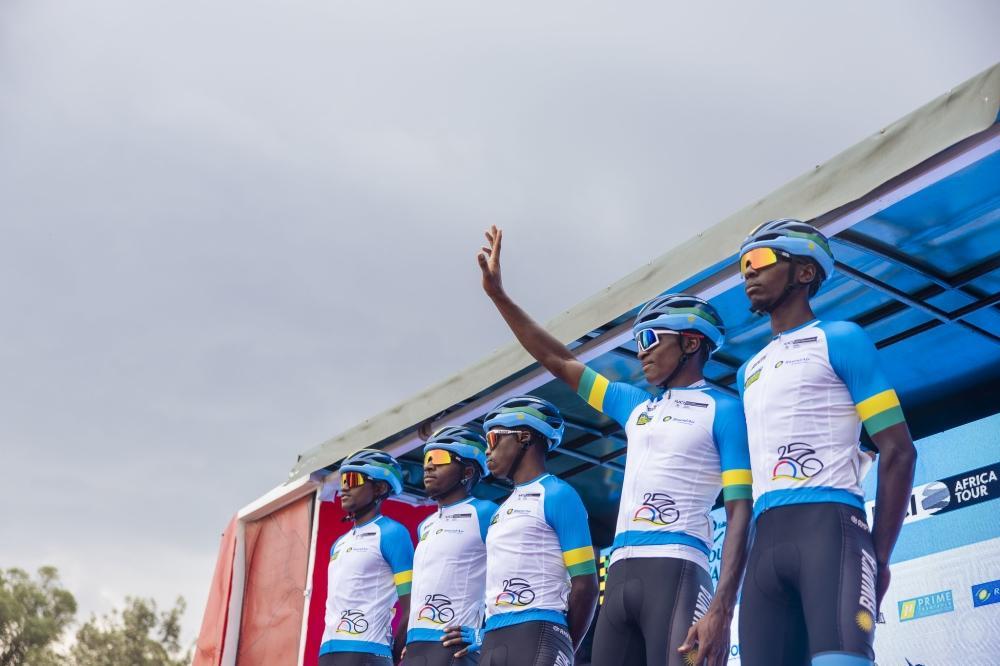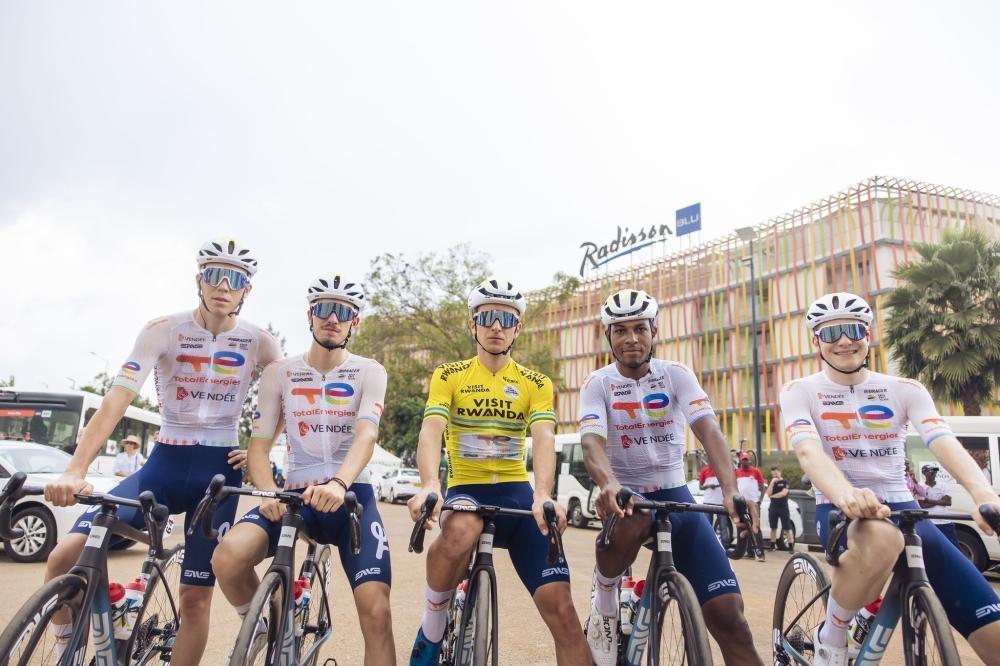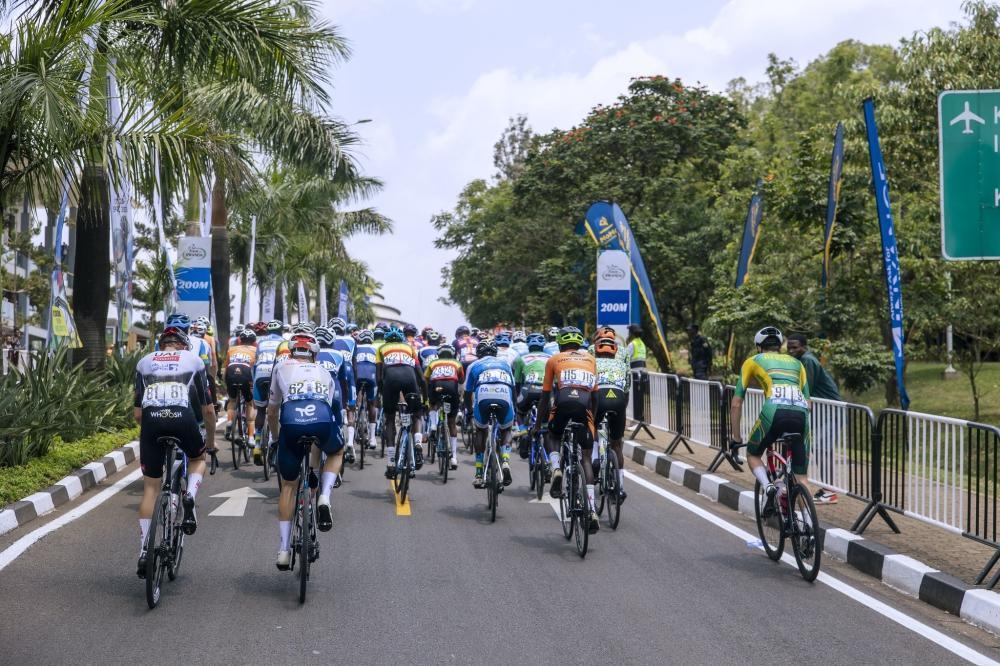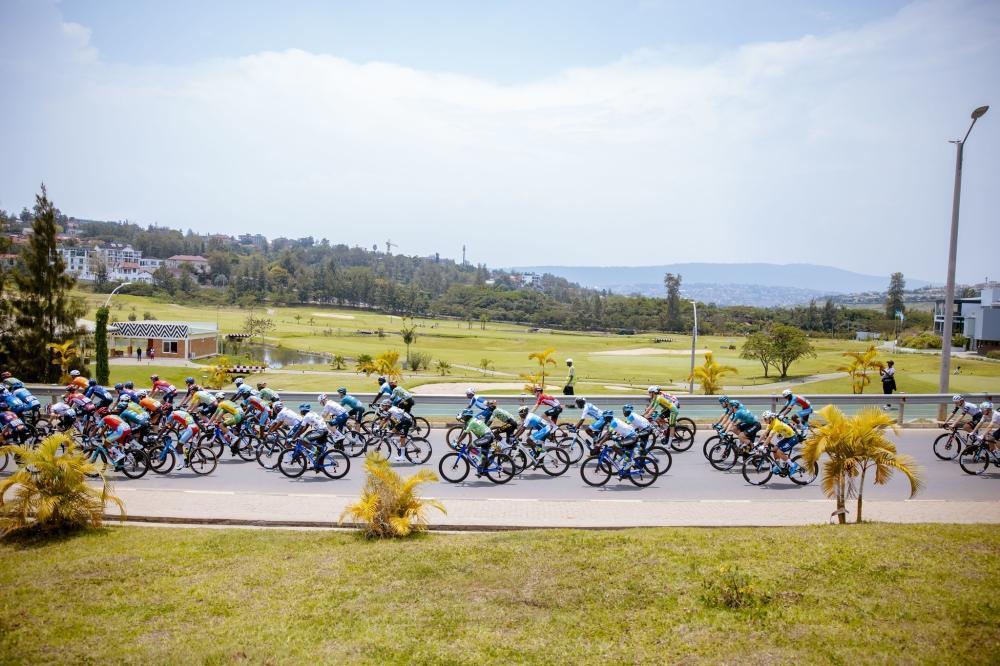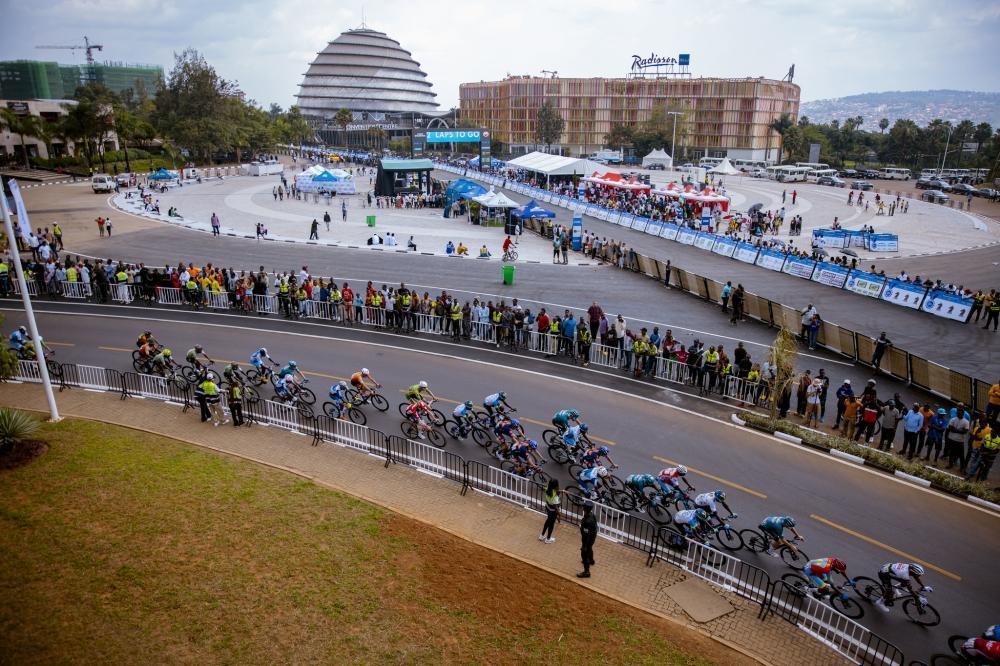Africa-Press – Rwanda. The Adidas slogan is “Impossible is nothing.” This slogan, adopted in 2004, is inspired by a quote from Muhammad Ali and aims to convey a spirit of ambition, pushing boundaries, and overcoming limitations in sports and life.
Which is why, despite the seemingly daunting nature of hosting the UCI Road World Championships, Rwanda has proven its ability and potential to tackle large-scale challenges.
This undertaking for Rwanda could further be equated to the idiom “biting off more than you can chew” —which means taking on a task or commitment that is too difficult or demanding for one’s abilities or capacity.
To its critics, Rwanda may indeed be biting off more than it can chew with the UCI World Road Championships. But if you follow how this nation does its things, it’s not difficult to realize that it is more than capable of staging a successful event.
The country’s rapid infrastructural development, particularly in road networks and facilities, positions it well to accommodate such a prestigious event.
Nonetheless, this World Championships is far more than anything Rwanda has undertaken before. This is massive in every aspect. It is the crème de la crème of international cycling.
The current UCI World Road Race Champion is Tadej Pogačar from Slovenia, who won the 2024 championship in Zurich. The Slovenian, fresh from winning his fourth Tour de France, will be aiming to retain the race in Kigali.
And it’s just over a month before Kigali becomes the centre of world cycling as Rwanda hosts the 2025 UCI Road World Championships, scheduled to run from September 21-28.
For starters, this landmark event will make history as the first-ever UCI Road World race held on African soil. The nation cannot afford to not organize a successful event. The world will be watching closely—this is Rwanda, after all.
While this is a monumental undertaking for Rwanda, questions remain—and rightly so.
Is the country ready to host such a prestigious event despite not being the dominant force in African cycling?
How will Rwanda leverage its previous experience hosting international cycling events, such as the Tour du Rwanda, to ensure a smooth and successful World Championships?
Well, Rwanda is relatively new to the elite cycling stage, with the national team not quite competing (anymore) with the continent’s heavyweights such as Eritrea, South Africa, Algeria, Mauritius and Morocco.
Rwanda is only ranked sixth in Africa, but it has made impressive strides in developing its cycling infrastructure and talent. Way to go, but at least, if it’s a car, it is on the road and heading in the right direction.
The journey is never smooth-riding, with lots of challengers and bumps along the way. When Rwanda bids to host these global events, it is easy to forget that most Rwandans face daily hardships—even to put food on the table!
The country has placed strong emphasis on sport as part of its national development goals—aiming to use sports like cycling to promote tourism, youth empowerment and global visibility.
Yet, despite its steady growth, Rwandan cycling still faces significant challenges.
Competing against countries with more established cycling programs, such as Eritrea, which boasts top African riders like Biniam Girmay, presents a daunting task.
Rwanda’s highest-ranked rider, Eric Muhoza, sits at a modest 22nd in Africa—far from the caliber needed to compete on the world stage.
This disparity raises concerns about how Rwanda riders will perform during the World Championships. Many are wondering if the local riders will be able to even make an impression against the world’s best.
Regardless, impress or not, they have nothing to lose, for, no one expects them to—by just racing alongside the best in the world is itself victory for them. I can even go as far as to say, this is a once in a life-time experience for them. Priceless.
However, beyond the local riders’ expectations, stakes are high, and Rwanda cannot afford to falter in its preparations.
The number of riders participating in the championships varies by event and year, but generally around 1000 riders from about 75 countries take part in the main road races. These are massive numbers. But manageable.
Meanwhile, the number of riders per nation is determined by the UCI World Rankings, with higher-ranked nations allowed to bring more riders. For example, in the Men’s Elite road race, the number of participants can be around 100.
The Worlds will not only serve as a stage for cyclists to showcase their talents, but also as a platform for Rwanda to bolster its global reputation as a top destination for global events.
The experience in hosting the Tour du Rwanda, one of Africa’s premier cycling races, will be invaluable when it comes to organizing the World Championships.
The Tour du Rwanda has become a crucial fixture in the African cycling calendar, drawing international teams and riders every year.
This experience has honed Rwanda’s ability to manage logistics, coordinate with international cycling bodies, and ensure a smooth/safe race for athletes and spectators alike.
The lessons learnt from the Tour du Rwanda are already being incorporated into the preparations for the World Championships, according to the Rwanda Cycling Federation (FERWACY).
Infrastructure improvements, including the removal of speed humps on the race circuits and the increment of technical and security measures should all be part of the effort to align the event with UCI standards.
Technical partners like Golazo and ASO are providing the expertise needed to ensure that every aspect of the event, from logistics to security, is up to international standards.
Rwanda’s track record of successfully hosting international events—such as the 2016 African Nations Championship—has demonstrated the country’s ability to manage large-scale sporting occasions. Yet, the UCI World Road race is a different, bigger monster altogether.
However, with a trusted security framework in place and a long-standing partnership with institutions like the Ministry of Sports, Visit Rwanda, and FERWACY, we can suppose the country will be well-prepared and ready.
While Rwanda’s riders are not expected to challenge among the elite, one can testify (with authority) that the development of local talent has been a priority for the local cycling federation.
The national team is undergoing intensive preparations, with 34 riders, including both men and women, currently in training camps at the African Rising Cycling Centre in Musanze.
These camps are supported by the UCI World Cycling Centre (WCC) to provide riders with the opportunity to sharpen their technical skills, endurance and mental resilience.
The WCC’s “Africa 2025” program, which aims to elevate African cycling, has been a critical resource for Rwandan riders, giving them access to world-class training and coaching.
For Rwanda, the UCI Road World Championships is not just a sporting event—it is a national project, and must be treated as such.
The Ministry of Sports is leading the planning efforts, ensuring that the championships align with Rwanda’s broader development goals.
The World Championships represents an opportunity for Rwanda to showcase its development, culture and hospitality to a global audience.
Team Rwanda, too, is preparing the riders in the best way possible to ensure the event is a success, with focus on utilizing the resources available, such as the UCI WCC programs.
For Rwanda, the stakes could not be higher. The world will be watching. It is an opportunity to cement itself as a premier cycling hub in Africa.
In just over a month, all eyes will be on Kigali as Rwanda’s determination to rise to the challenge will be on full display. For a country and a people that is (hyperbolically speaking) allergic to losing, failure is simply not an option.
For More News And Analysis About Rwanda Follow Africa-Press

